The Glue Person Everyone Needs on Their Team
Duke great and NBA champion Shane Battier reveals the ‘glue’ traits that quietly hold winning teams together
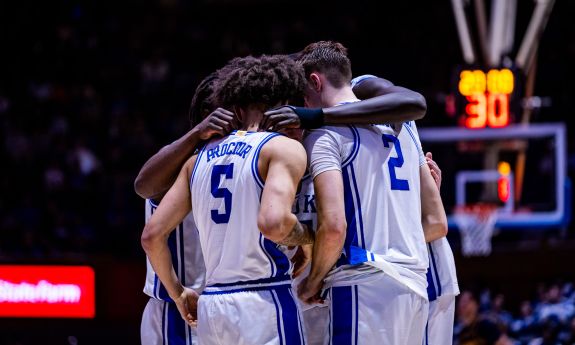
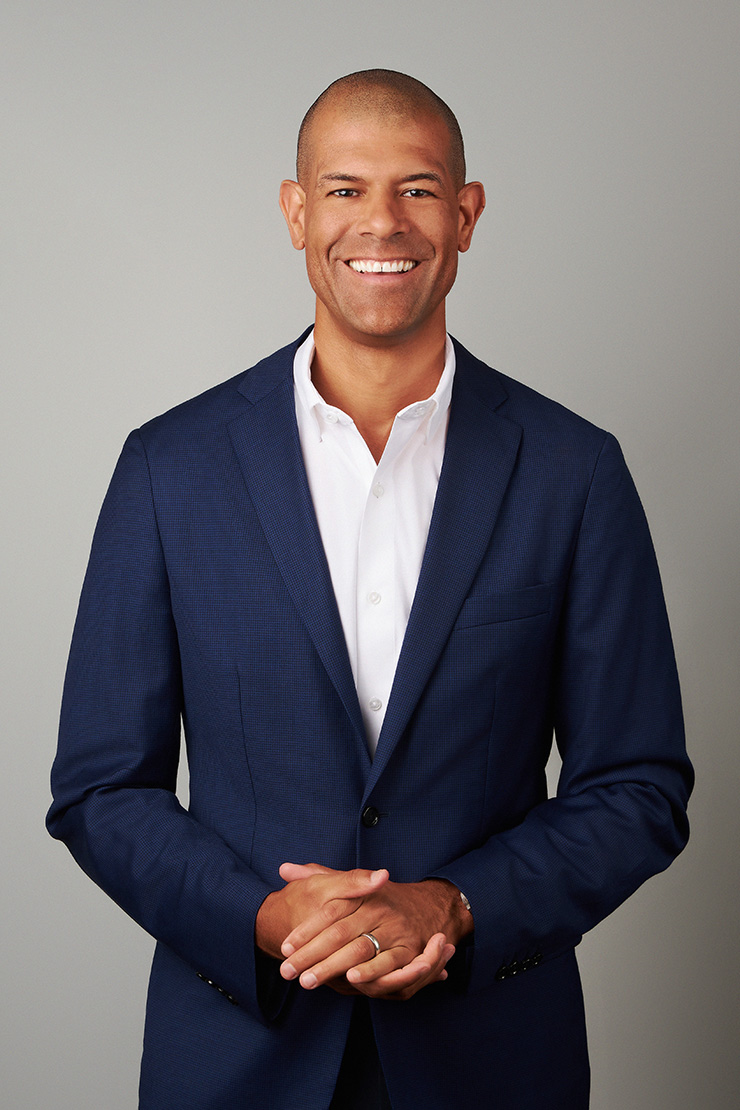
“I just want to be crystal-clear that I understand it,” he told his coach.
“Knowing that if we went through it again, maybe our point guard will get it this time,” Battier said. “No one would ever give me credit for our point guard knowing that coverage, but that might have been the difference in winning or losing the game.”
And that shows precisely why Battier – Duke Class of 2001, 2001 NCAA champion under Mike Krzyzewski and two-time NBA champ – is considered one of the all-time great “Glue Guys.” Battier had not only the emotional intelligence to see that his teammate needed help, but also the fearlessness to sacrifice his own stature for the betterment of the team.
“Shane Battier is the gold standard when it comes to glue players,” Duke men’s basketball coach Jon Scheyer told Working@Duke. “His basketball IQ was off the charts.
“But it wasn’t just about his skill. What made Shane special was his leadership. He played tough defense and made big shots, but it was his humility and willingness to sacrifice that made him the ultimate teammate.”
“Glue Guys,” in basketball terminology, are the players who do all the little things that don’t show up in statistics, who work to build team camaraderie and understand that team success is the pinnacle of achievement.
They are the same immeasurable qualities that are most valued in the workplace, too.
And that’s why every workplace team at Duke needs a Glue Guy/Gal/Person.
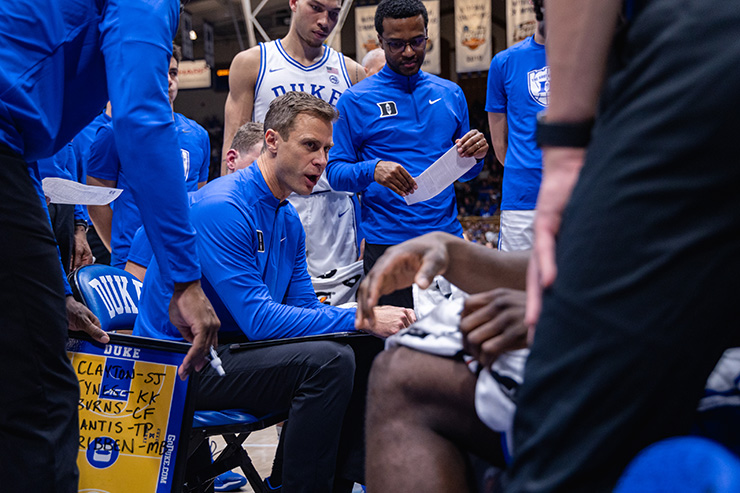
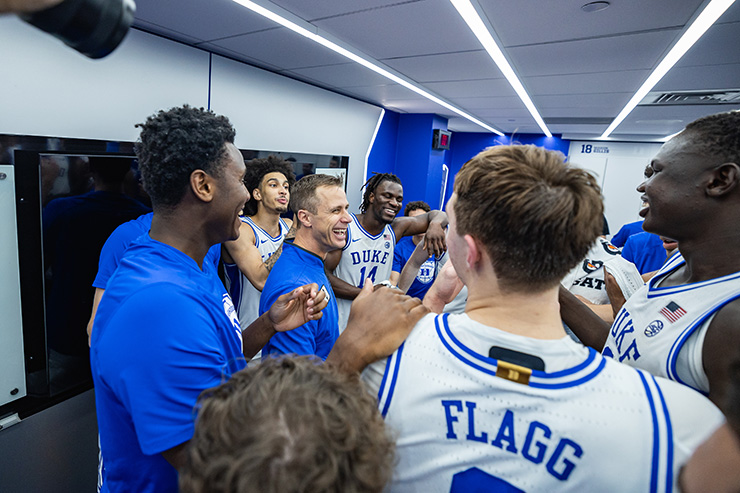
Duke men's basketball coach Jon Scheyer says a "glue" player is essential for a successful team. Photos courtesy of Duke Athletics
Every Team Needs Glue
Sanyin Siang, Executive Director of the Coach K Center on Leadership & Ethics at the Fuqua School of Business, says that Battier is a perfect example of someone who plays one of the vital “invisible roles” she has identified as crucial to successful organizations.
These invisible roles are imperative to the success of any workplace team.
“We’re really understanding the interdependence, or responsibility to and for each other,” Siang said.

She has identified four critical “invisible roles” in each department: “The Catalyst” is the person who is always pushing team members to question assumptions and reframe challenges; “The Mentors” help transfer knowledge and cultural norms; “The Integrators” are big-picture people who weave together ideas and connect the team; and “The Glue” individuals promote team chemistry and create emotional bonds.
“When you talk with Shane or any ‘glue’ person, you just feel a deeper sense of connection as part of something that’s larger than yourself,” Siang said.
The terminology might have come from basketball, but “glue” individuals have the skills that are necessary for any organization. Scheyer saw that during his playing days with Duke from 2006-10, when he called Lance Thomas the best “glue” teammate he’d had. Scheyer and Thomas were co-captains on Duke’s 2010 national title team.
“His selflessness, work ethic and willingness to do whatever it took to help the team win were unmatched,” Scheyer said. “He played with passion every single day.”
Glue people ensure individuals are aligned and a cohesive unit – understanding that chemistry might be the most intangible and valuable characteristic of a successful team, Scheyer said. Those traits are the same in basketball and in any office.
They’re the co-workers who always acknowledge someone’s birthday or personal milestone, who ask questions in the meeting when they sense more clarity is needed, who ensure that credit is given for the tiniest achievement and who organize the team lunch each week.
“These skills — communication, leadership, patience and emotional intelligence — translate directly into work and everyday life,” Scheyer said. “Whether it’s in a corporate setting, coaching, or a personal relationship, being able to bring people together and lift others up is a trait that’s always valuable.”
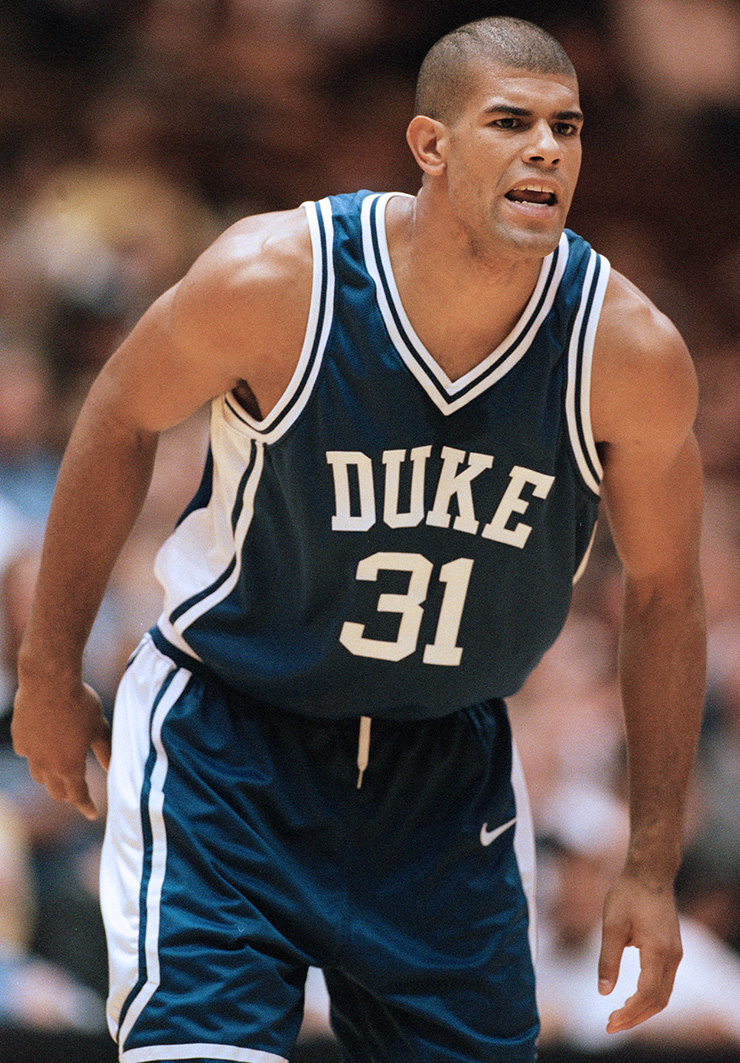
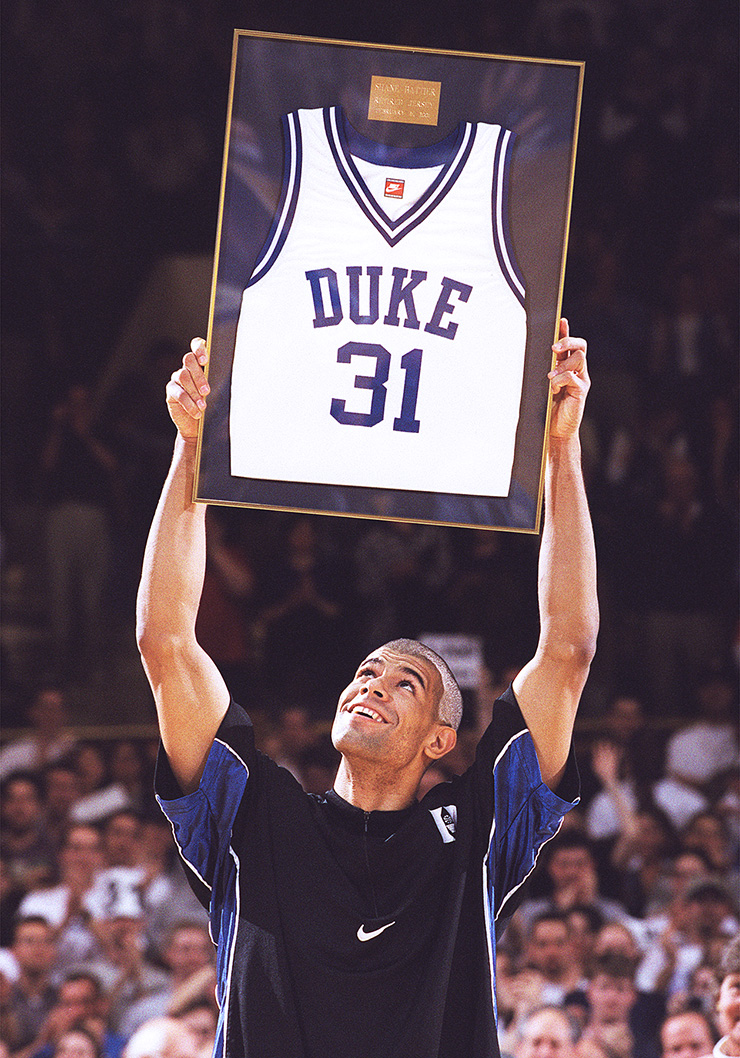
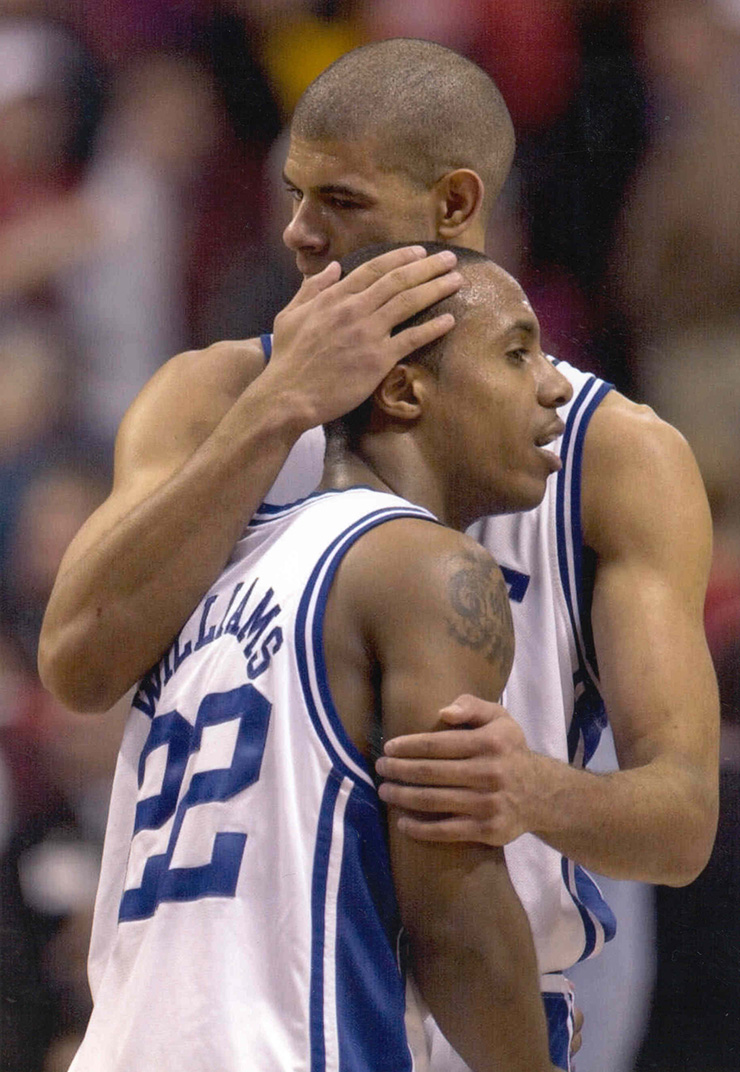
Shane Battier played at Duke from 1997-2001, leading the Blue Devils to two Final Fours and the 2001 national title. Photos courtesy of Duke Athletics
Advice from a Glue Person
Who's Your Glue Person?
Tell us about the person who holds your team together and why they're your "glue."
“The Glue Guy” descriptor has become such a part of Battier’s identity that in September 2024, he launched a podcast called The Glue Guys with former NFL quarterback Alex Smith to explore what makes individuals better teammates in all walks of life.
The label fits because Battier knows he didn’t always have outlandish statistics when he played for the Miami Heat alongside stars LeBron James, Dwyane Wade and Chris Bosh; in fact, he touched the ball 2% of his time on the court with them.
“So that begs the question: What was I doing in the other 98% of the time to justify and earn not only my playing time, but to be on the court in most important times of the game?” Battier said.
“The lessons of that are in the intangibles, and the immeasurable,” Battier continued. “I think that is what glue guys and glue gals are all about. It's a focus and an execution of all the things that no one’s paying attention to but are hallmark traits of the championship and elite teams.”
The “glue” quality is something Battier studied in his post-playing days when he served as director of basketball development and analytics for the Miami Heat to better understand what makes players like him tick.
Battier has identified a handful of the most important “glue” person traits necessary for someone on every team.
Control the 'controllables'
“Most people focus on what they can't control – whether it's title, role, responsibility, ‘Coach doesn’t put me in,’ ‘Boss doesn’t trust me,’” Battier said. “A ‘glue’ person says, ‘What can I control?’ And they control those traits and those characteristics and behaviors to the best of their ability. That makes a difference.”
Passionate non-verbal displays
“Think about someone maintaining great eye contact and asking great questions and follow-up to show that you’re actually listening,” Battier said. “Those are proxies for, ‘I care,’ and ‘I want to help you help us be a great team.’”
Generative listening
“Can you ask simple questions that spur innovation in the person who’s talking?” Battier said. “The person doesn’t solve the problem, but just by listening and asking an interesting question, you may unlock a solution to a problem that you never considered before.”
Intense professional will
“It doesn’t matter what school you went to or what level of education you obtained,” Battier said. “Those are just metrics that you care and that you are trying to exert care and desire to succeed.”
Humility
“We’re talking self-sacrifice,” Battier said. “We’re talking non-pursuit of the limelight where you’re always deflecting credit for your role in the team. All you care about is the mission of and success of your team.”
Emotional control
“Maybe the most important characteristic of a glue guy or gal is emotional control,” Battier said. “How do you react to success? How do you react to failure? As Coach K used to always say, ‘Do you move on to the next play?’”
All these characteristics are vital because the “glue” person just might be the greatest key to larger success.
“The one constant in all of my teams, for me, at least, it's been about what can I do to help my team win?” Battier said. “Looking back at my career, while I had some amazing individual success, I'm much more proud of the team success that I was a part of and my role on that team.”
Do you have a “Glue” person on your team? Send us your nomination for who holds your team together with intangibles through our story idea form or write working@duke.edu.
Follow Working@Duke on X (Twitter), Facebook and Instagram and subscribe on YouTube.